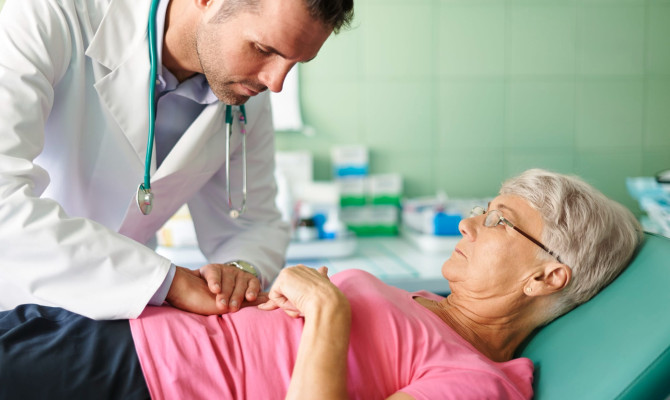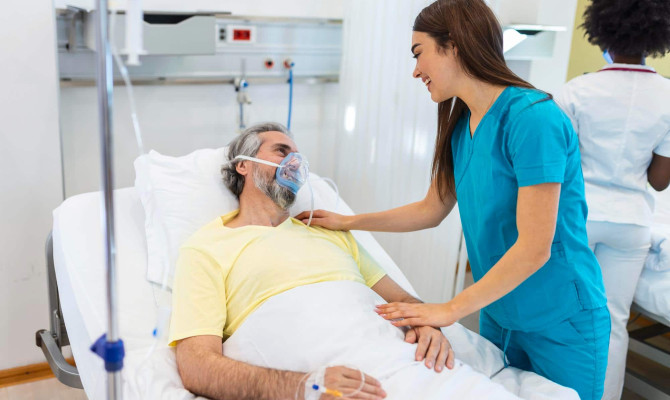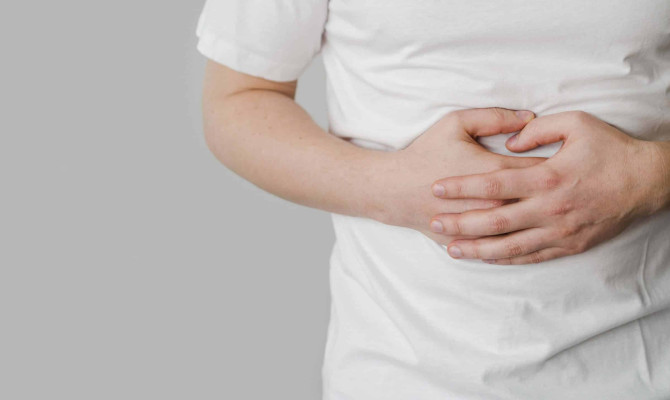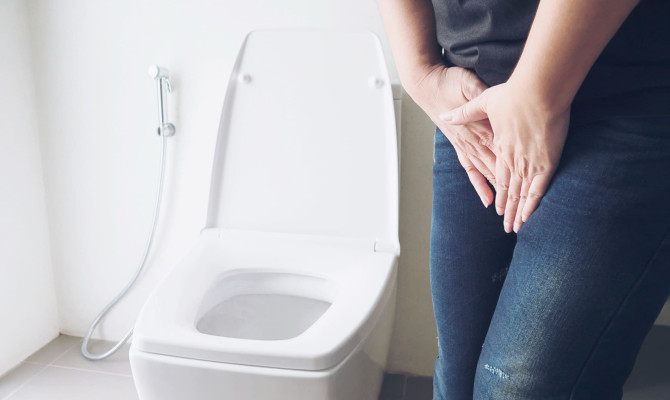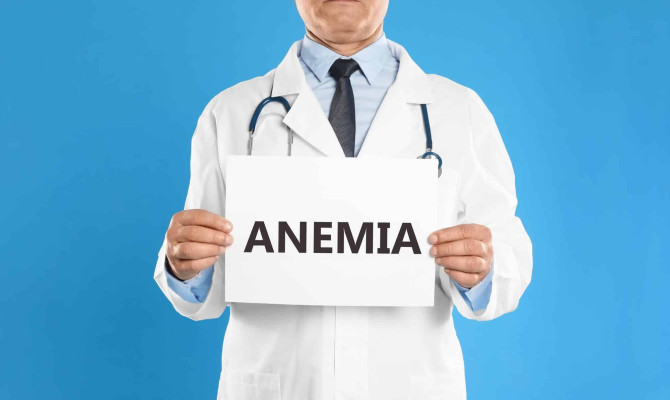Crohn’s Disease: Causes, Complications and Management

- Crohn's disease
- 14 Aug 2023
Overview
What is Crohn’s disease ?
A chronic inflammatory bowel disease that primarily affects the small and large intestines, Crohn’s disease affects the digestive system. It is characterized by digestive system lining injury, inflammation, and swelling. 1Overview | Researched based study from Niddk.nih.gov

Prevalence
How widespread is Crohn’s disease?
Although the condition can affect individuals of any age, young adults between the ages of 15 and 35 are the ones who are most frequently diagnosed with it.
Everywhere in the world, Crohn’s disease affects both males and women equally, though it is more prevalent in industrialized nations.
In North America and Europe, Crohn’s disease is thought to affect 3 in 1000 individuals, making it a relatively rare condition overall.
Causes
Causes of Crohn’s disease
Although the precise cause is unknown, research indicates that it may be caused by a number of factors, including
Genetic
- A higher chance of contracting Crohn’s disease exists in those with a family history of the condition.
The immune system
- It is thought that an abnormal immune response in which the body’s immune system attacks the digestive tract may be the source of Crohn’s disease.
Environmental aspects
- Diet, stress, and smoking are a few environmental variables that can cause or aggravate Crohn’s disease symptoms.
Gut microbiome
- The microorganisms that reside in the digestive tract are collectively referred to as the gut microbiome. According to research, alterations in the gut microbiome may contribute to the onset of Crohn’s disease. 1Causes | Researched based study from Niddk.nih.gov
Symptoms
Symptoms of Crohn’s disease
The symptoms of Crohn’s disease can differ widely in severity and frequency. Typical signs and symptoms include
- Constipation and discomfort
- Diarrhoea, which may be bloody.
- Fatigue Loss of weight
- Diminished hunger
- Anaemia
- Anal cracks and rectal bleeding
- Intestine blockage
- Aching joints
- A skin reaction
Not everyone with Crohn’s disease will experience all of these symptoms; some individuals may only experience minor symptoms, whereas others may experience severe symptoms. It’s crucial to get medical help if you experience any of these because the symptoms can also worsen before going into relief. 1Symptoms | Researched based study from Niddk.nih.gov
Types
What are the variations and types of Crohn’s disease?
There are several variations and types, including:
Location-based variations
The inflammation can appear in various places depending on which parts of the digestive tract are affected by Crohn’s disease. Location-based variants include, among others:
- Ileocolitis: The colon and ileum, the bottom section of the small intestine, are both impacted by this type of Crohn’s disease. (large intestine).
- Gastroduodenal Crohn’s disease: The gut and duodenum are both affected (first part of the small intestine)
- Jejunoileitis : The jejunum (top portion of the small intestine) and the ileum are both affected.
Behavior-based variations:
The disease’s behavior describes how it effects the digestive system. Among the variants are:
- Stricturing Crohn’s disease: The intestinal walls of patients with this form of Crohn’s disease thicken and constrict, resulting in blockages in the digestive system.
- Fistulising Crohn’s disease: this variety results in tunnels (fistulas) forming between various digestive tract organs, which can cause infections and abscesses. 5Types | Researched based study from Nlm.nih.gov
Other varieties:
When only the colon is impacted by colonic Crohn’s disease.
- Perianal Crohn’s disease: causes ulcers, abscesses, and fistulas in the rectum and anus.
- Indeterminate colitis: This type of IBD can be difficult to diagnose because it shares characteristics with both Crohn’s disease and ulcerative colitis.
Diagnosis
Diagnosing Crohn’s illness
Physical examination and medical history
- In addition to asking about the patient’s symptoms and medical background, the doctor will conduct a physical examination to check for any abnormalities in the abdomen, including any indications of inflammation.
A blood test
- C-reactive protein (CRP) or erythrocyte sedimentation rate measurements in the blood can be used to detect inflammation and other indicators of Crohn’s disease. (ESR).
Stool test
- To check for indications of an infection or inflammation in the digestive system, stool tests can be used.
Imaging exams
- For the purpose of searching for indications of inflammation, obstructions, or other abnormalities in the digestive system, imaging tests like X-rays, CT scans, and ultrasound can be used.
Excision and endoscopy
- A thin, flexible tube with a camera and light on the end is used in endoscopy to look inside the digestive system. During an endoscopy, biopsies can be performed to check for inflammation or other abnormalities. 2Diagnosis| Researched based study from Niddk.nih.gov
Difference
What distinguishes ulcerative colitis from Crohn’s disease?
Two chronic inflammatory bowel diseases that affect the digestive system, Crohn’s disease and ulcerative colitis, vary significantly from one another.
Location
- While ulcerative colitis only affects the interior lining of the large intestine and rectum, Crohn’s disease can affect any area of the digestive system, including the mouth and the anus.
Inflammation
- Unlike Crohn’s disease, which causes inflammation that happens in patches with healthy areas in between, ulcerative colitis causes continuous inflammation in the colon’s affected area.
Symptoms
- Both diseases carry a high risk of severe side effects like colon cancer, ulcers, and bowel obstruction. However, problems like fistulas, strictures, and abscesses that are less frequent in ulcerative colitis can also arise from Crohn’s disease. 4Difference between Crohn’s and ulcerative colitis | Researched based study from Uclahealth.org
Treatment
How is Crohn’s disease treated?
Medications
- The treatment of Crohn’s disease includes immunosuppressant like Azathioprine and Methotrexate as well as anti-inflammatory medications like corticosteroids and Amino salicylates. Targeting particular immune system components can also be done with the help of biologic medications like Infliximab and Adalimumab.
Surgery
- Surgery might be required to repair fistulas or abscesses as well as to remove damaged or blocked portions of the digestive system.
Lifestyle changes
- Changes in lifestyle, such as giving up smoking, controlling tension, and exercising frequently, can help lessen symptoms and enhance general health.
- To create a customized therapy plan, patients and their doctor must work closely together. To control symptoms and avoid complications, it may occasionally be necessary to combine medications and lifestyle modifications.
Diet
- Although there is no one diet that can completely cure Crohn’s disease, some nutritional adjustments may help to reduce symptoms and enhance general health. Here are some nutritional recommendations that might be useful.
Skip the trigger items
- Some meals may make Crohn’s disease symptoms worse. Dairy, high-fat, spicy, and high-fibre meals are some examples of common trigger foods.
Eat little, regular portions
- Eating more frequently and in smaller portions may help to lessen digestive complaints like bloating and diarrhoea.
Drink a lot of water
- For those with Crohn’s disease, staying hydrated is crucial, particularly if diarrhoea is a sign. The body can be kept moisturized by consuming clear broth, herbal tea, and water.
Select low-fibre, low-fat meals
- Foods that are low in fibre and fat might be simpler to process and less likely to produce symptoms. Cooked vegetables, lean proteins like chicken and seafood, and low-fat dairy products are a few examples.
- Foods like raw fruits and veggies are restricted on this diet.
Speak with an authorized dietician
- You can get help from a registered dietitian in developing a personalized diet plan that takes into account your particular needs and tastes. 3Treatment | Researched based study from Niddk.nih.gov
Home remedies
Home remedies for Crohn’s disease
Here are a few possible helpful all-natural treatments for Crohn’s disease.
Probiotics
- Probiotics are good microorganisms that can aid in re-establishing the harmony of the gut flora. Research has effects. shown that specific probiotic types can aid in reducing inflammation.
Turmeric
- Curcumin, a substance found in the spice turmeric, has anti-inflammatory effects. Curcumin may help to lessen gut inflammation and improve symptoms, according to some research.
Aloe Vera
- A plant known as aloe Vera has anti-inflammatory qualities that may be useful in reducing gut inflammation.
Fatty acids omega-3
- Flaxseed, salmon oil, and other foods contain this. Omega-3 fatty acids have been shown in studies to have anti-inflammatory properties and to assist with the symptoms of Crohn’s disease.
Managing stress
- Reducing stress may be beneficial in managing Crohn’s because it can cause its symptoms. Yoga, deep breathing exercises, mindfulness meditation, and routine exercise are some effective methods for reducing stress.
It is significant to remember that natural remedies should not be used instead of traditional medical care but rather in addition to it. Before beginning any natural treatment or making major dietary or lifestyle changes, always consult your doctor.
Complications
What are the complications?
Intestinal obstruction
- Intestinal inflammation can narrow or obstruct the digestive system, resulting in symptoms like cramping, nausea, and back pain.
Fistulas
- Fistulas are abnormal connections or tunnels that can develop within the intestine or between the intestine and other structures like the skin or bladder.
Abscesses
- Pus-filled pockets may develop as a result of inflammation. (abscesses).
Malnutrition
- Malnutrition and weight loss can result from chronic inflammation that hinders the body’s ability to absorb minerals from food.
Alveolar cracks
- Small tissue tears near the anus, which can hurt and cause bleeding.
Arthritis
- Swelling and joint discomfort are common, especially in the knees and ankles.
Eye problems
- It can also have an impact on the eyes, resulting in redness, discomfort, and light sensitivity.
Higher chances of colorectal cancer
- Colon irritation that lasts for a long time can make you more likely to get colon cancer.
Increased risk of blood clots
- The likelihood of getting blood clots in the legs or lungs is raised.
Pregnant mothers with Crohn’s disease
- There are many things to think about for Crohn’s disease-positive pregnant mothers. To avoid complications and guarantee the health of the mother and the unborn child, it is crucial to manage the illness during pregnancy.
- Crohn’s disease symptoms can change during pregnancy, with some women having flare-ups while others may experience a decrease in symptoms.
- Premature labour, low birth weight babies, and abortion risk may all rise.
Prognosis
What is the prognosis of Crohn’s illness?
It largely relies on the particular circumstance. Despite the fact that there is no known cure, there are treatments that can help manage symptoms, decrease inflammation, and avoid complications.
With the right medical attention and management, many individuals with Crohn’s disease are able to lead normal, active lives. However, the disease’s progression can be unexpected, with remissions interspersed with flare-ups.
Crohn’s illness occasionally causes complications that call for hospitalization or surgery. To create a personalized treatment plan, it’s critical to consult with the doctor frequently and receive follow-up care.
Any feedback on this article?
 This Articles content was accurate
This Articles content was accurate Very Informative Article
Very Informative Article I have a question or a comment
I have a question or a comment
 This article contains inaccurate content
This article contains inaccurate content This article was not helpful
This article was not helpful I have a question or a comment
I have a question or a comment
We appreciate your helpful feedback!
Checkout our social pages
References
-
National Institute of Diabetes and Digestive and Kidney Diseases
Definition & Facts for Crohn’s Disease | Overview | Causes | Symptoms
-
National Institute of Diabetes and Digestive and Kidney Diseases
Crohn’s Disease | Diagnosis
-
National Institute of Diabetes and Digestive and Kidney Diseases
Crohn's Disease | Complications | Treatment
-
UCLA Health
INFLAMMATORY BOWEL DISEASE Ulcerative Colitis vs Crohn's Disease | Difference
-
National Library of Medicine
Crohn Disease | Types













